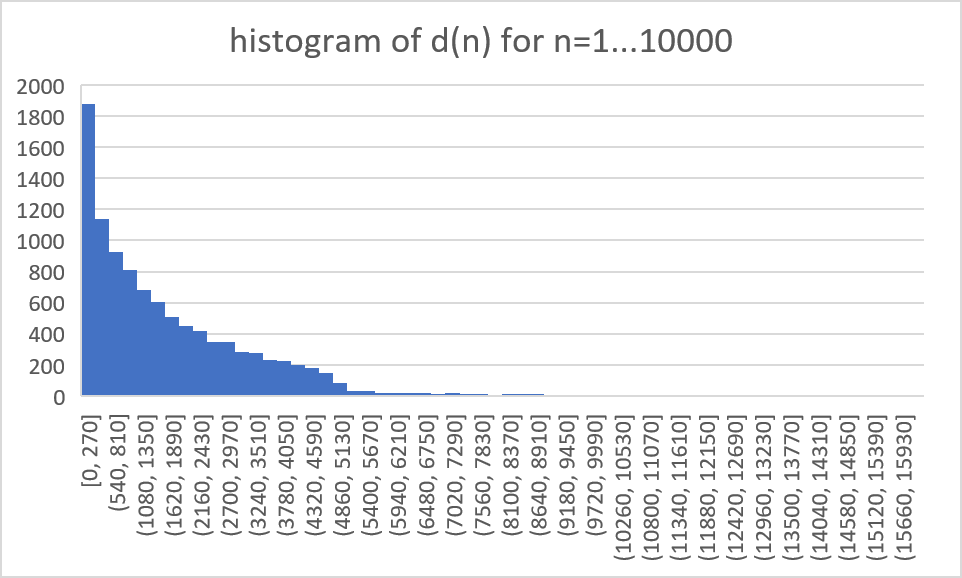For $n \in \mathbb N$ we can observe the $n$ remainders $b_1,...,b_n$ by writing $n$ as $n=a_k \cdot k+b_k$ for $1 \leq k \leq n$.
Because of the familiar division-with-remainder theorem we have $0 \leq b_k <n$
Then the function $$r(n)=\sum_{k=1}^{\lfloor{\frac {n-1}{2}}\rfloor}b_k$$ can be defined well.
I came to the idea of doing the research of the function $d(n)=|r(n)-r(n-1)|$ because I thought it would have interesting properties.
Peter computed the following after I typed to him to check of the odd values of $d$ how many primes are there for some ranges:
For the range of $n$ from $1$ to $10 000$ there are $7330$ odd numbers and $2371$ of them are primes.
For the range of $n$ from $1$ to $100 000$ there are $74461$ odd numbers and $19065$ of them are primes.
For the range of $n$ from $1$ to $1000 000$ there are $748293$ odd numbers and $155800$ of them are primes.
For the range of $n$ from $1$ to $10000 000$ there are $7494602$ odd numbers and $1314246$ of them are primes.
Yes, some primes, as is expected, occur more than once, but this seems to me to be a very high percentage (which tends to decrease as can be seen from the data) and because of that I typed in the title good prime-generator.
Do you think that this is a good prime-generator, and how to explain such a high percentage of primes?

 (made with Python and Excel)
(made with Python and Excel)